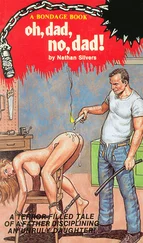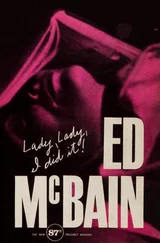Dead, he thought.
And the anger would vanish, and he would lie in the darkness as the grief enveloped him, the sadness touching his eyes, sitting behind his eyes but refusing him the mercy of tears, wrapping him as completely as a shroud, his face, his throat, suffocating him, constricting his chest, making it impossible for him to breathe in the dark, his daughter dead in the dark, she had abandoned his life and forfeited her own, in the dark, dead someplace in India. He mourned for her, but the tears would not come. His eyes burned with tears scalding from within and behind, but they would not come. He could not cry for the daughter he knew was dead but prayed was not.
Once, in the middle of the night at the beginning of October, he dared to cross the line he and Connie tacitly respected, dared to open the casket of horrors stored in the darkest corner of his dread, dared to whisper in the dark, “She’s dead, isn’t she?”
Connie sighed.
And said nothing.
Larry Kreuger called the very next day.
It was Lester Blair who found her.
He had come down from the house up on the ridge to walk his two Irish terriers through the woods near the reservoir. She was lying in the underbrush alongside the old logging road that paralleled the Blair driveway. The dogs stopped dead in their tracks. He thought at first they’d smelled a raccoon, or maybe a snake; there were lots of copperheads here near the water. One of the dogs began whimpering. Lester said, “Shh, boy,” and squinted through the foliage, and saw her lying on her side with the back of her head blown away.
She was wearing what looked to be a party dress, pink and silky and spattered with blood, the hem pulled back over pantyhose she must have torn coming through the woods, ladders up the sleek shiny sides of both legs, blood on the legs, too, blood all over the ground around her, shining on the fallen russet leaves. One of her high-heeled shoes had dropped from her foot. The foot looked particularly vulnerable without the shoe on it. More than anything else, that foot without a shoe on it seemed to sum up for Lester the utter vulnerability of the young girl who lay on the ground on the shiny red leaves. The weight of a twenty-gauge shotgun crushed the wet red leaves.
The call to Jamie came at 10:00 A.M. that Sunday morning, the eleventh day of October. He was sitting at the breakfast table with Connie, sipping at his coffee as he leafed through the Times Magazine section, studying the photographs, commenting every now and again on the particular ineptitude of this or that photographer; he had begun to notice about himself that he rarely commented on skill anymore, but only on the lack of it. When the phone rang, he took another sip of coffee before answering.
“Hello?” he said.
“Jamie, it’s Larry Kreuger. I’m sorry to be breaking in on your Sunday this way.”
His voice sounded odd. Jamie knew at once that something was wrong. He had no idea yet of the magnitude of the wrongness.
“What is it?” he asked at once.
“I wonder can you come on over.” Larry’s voice, southern, gentle, polite, was still underscored with an ominous note.
“What’s the matter?” Jamie asked.
“It’s Scarlett.”
“What about her?”
“She’s gone and killed herself,” Larry said, and his voice broke.
Two state troopers — both of them tall and strapping — were in the Kreuger living room when Jamie got there. The local police had just left, Lester told Jamie, shaking his hand at the front door, and then went on to relate how he had discovered the body in the woods while he was walking his dogs, and how he hadn’t known who she was, knew she was a local kid he’d seen around, but didn’t know her name. He’d run back up the hill to his house, and called the cops from the phone in the den, and then went back down to the logging road with them. In a little pink evening bag attached to a belt around her waist, they found a driver’s license identifying her as Scarlett Kreuger. “The thing that got me,” he said, “was her shoe was off, on the left foot, the shoe was off. That would have been the definitive shot. Bring the camera in tight on the foot and the shotgun lying beside it on the wet leaves. That would have defined it, Jamie. If we were doing it for television, I mean, where we can’t show the actual violence.”
Across the room, Jamie could hear the droning voice of one of the troopers. Larry looked up from where he was sitting on the couch, and signaled to him. Jamie walked across to him, aware of the whisper of his loafers on the thick carpet. Larry took his hand. “Glad you could come,” he said. “Sit down, these gentlemen were just asking some questions.”
“Melanie all right?”
“Yes, fine,” Larry said, nodding.
“Connie’s on her way over.”
“Fine,” Larry said. He’d been crying. His eyes were red, the lids puffed and swollen. But there were no tears on his face now; only a numbed and bewildered look. In the kitchen, Jamie could hear the hushed voices of consoling women.
“You were saying she went to this party at the country club last night,” one of the troopers prompted. Blue eyes. Blond hair at the sideburns. Pad open. Big gun holstered at his side; Jamie had heard that in some states the troopers used .357 Magnums, put a hole in a man the size of a sewer lid. He did not yet know that the jagged exit wound at the back of Scarlett’s head measured some six inches in diameter.
“Yes,” Larry said. “An engagement party. At the country club.”
“Which country club would that be, sir? The one here in Rutledge, or the...”
“The Talmadge Club.”
“Over near the university?”
“Yes.”
“Did she go alone, sir?”
“No.”
“Went with someone?”
“Yes.”
“A boy?”
“Yes, but not...”
“Would you know his name, sir?”
“Scotty Klein. Dr. Klein’s son.”
“Live here in Rutledge?”
“Yes. The Kleins are good friends of ours.”
“Came here to pick her up, did he? This... uh...” The trooper consulted his pad. “Scotty Klein, was it?”
“Yes, Scotty.”
“What time was that?”
“When he picked her up?”
“Yes.”
“About seven-thirty. But...”
“This her steady boyfriend or something?”
“No, no, nothing like that. Rusty Klein, that’s the...”
“Thought you said it was Scotty.”
“Yes, but this is the daughter. Rusty. She and my... daughter were in the same graduating class. The class of ’69. They all went together, you see. Rusty and... Scarlett, my daughter... and the Klein boy.”
“Oh, I see. So it wasn’t just the two of them.”
“No, it wasn’t.”
“It was the two Klein kids and your daughter.”
“Yes, that’s right.”
“How old is she, sir, your daughter?”
“Eighteen. She’ll be nineteen in...” He hesitated. He looked helplessly at Jamie. “She would have been... would have been nineteen next month.”
“And the Klein kids?”
“Rusty is my daughter’s age. I don’t know how old Scotty is. Younger, I know. I think he’s a senior at Lafayette.”
“Was it the Klein boy who was driving?”
“Yes.”
“Would you know what kind of car, sir?”
“What difference does any of this make?” Larry asked in his mild southern voice. “My daughter killed herself. You saw her lying on the ground there, you know she put that shotgun in her mouth and blew the back of her head off. The shotgun is mine, it was in the garage, on pegs there in the garage, wall pegs, she took the gun and shot herself with it, so why do you want to know what kind of car Scotty Klein was driving, what possible difference in the world can it make now what kind of car Scotty was driving?”
Читать дальше












